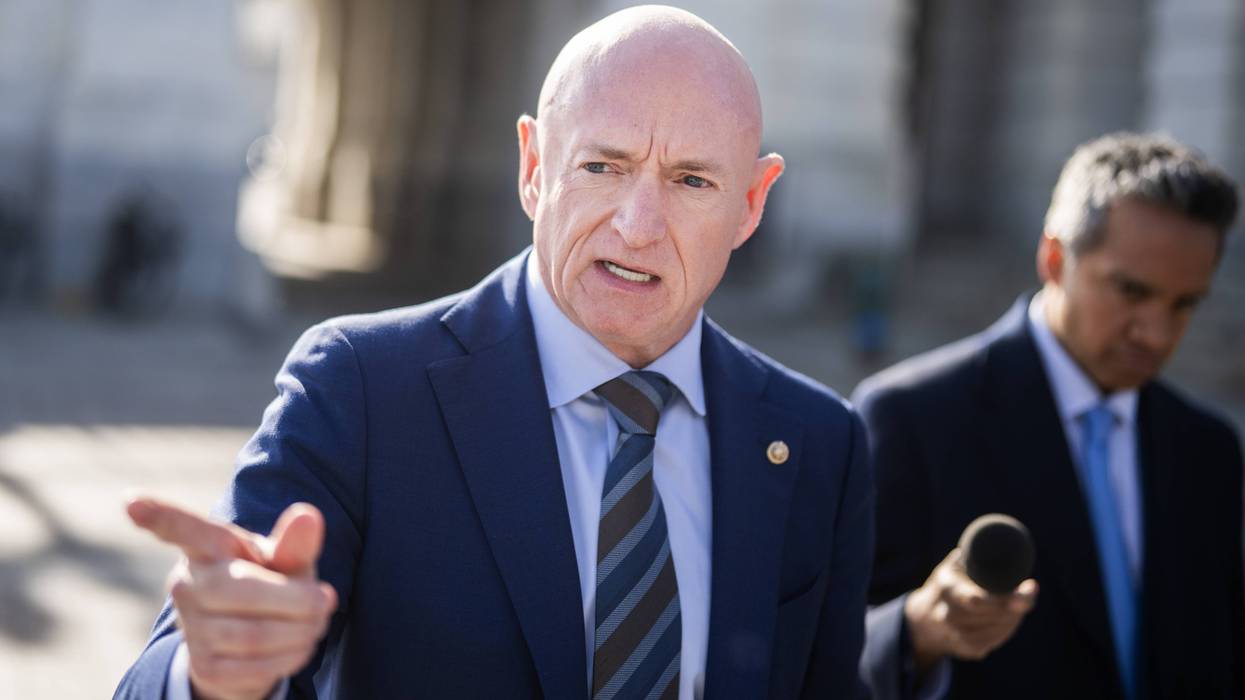'Minneapolis Is the Test Case': Trump Threatens Insurrection Act to Put Down Protests
"The Insurrection Act was always the plan," warned one critic of the president.
President Donald Trump on Thursday threatened to invoke the Insurrection Act, which would allow him to put the US military on American streets, unless demonstrations against federal immigration operations in Minneapolis come to an end.
In a Truth Social post, Trump demanded that Minnesota elected officials "stop the professional agitators and insurrectionists from attacking the Patriots of ICE [Immigration and Customs Enforcement], who are only trying to do their job."
If this doesn't happen, the president said, he would invoke the Insurrection Act and "quickly put an end to the travesty that is taking place" in the state.
"The Insurrection Act was always the plan, and Minneapolis is the test case," said Melanie D'Arrigo, executive director of the Campaign for New York Health. "They sent ICE in to terrorize and attack Black and brown communities to provoke a response that would justify deploying the military domestically in Blue cities. This has never been about immigration."
“Invoking the Insurrection Act to deploy military forces against the American people is the exact opposite of what Minneapolis — and the country — needs right now." —Lisa Gilbert, Public Citizen
Rep. Ilhan Omar (D-Minn.) made a similar warning last week, amid protests that erupted after the killing of Renee Nicole Good by a federal agent.
“What we are seeing right now," said Omar, "not only from the surge of 2,000 federal agents—now we have another 1,000 apparently coming in—it is essentially trying to create this kind of environment where people feel intimidated, threatened, and terrorized. And I think the ultimate goal of [Homeland Security Security Secretary] Kristi Noem and President Trump is to agitate people enough where they are able to invoke the Insurrection Act to declare martial law.”
“There is,” she continued, “no other justifiable way to describe what is taking place in Minneapolis at this moment. There is no justifiable reason why this number of agents is here in our state.”
The Insurrection Act has not been used since 1992, when President George HW Bush invoked it at the request of then-California Gov. Pete Wilson to quell riots that had broken out in Los Angeles after a jury acquitted police officers who were caught on camera beating Rodney King.
“Invoking the Insurrection Act to deploy military forces against the American people is the exact opposite of what Minneapolis — and the country — needs right now," said Lisa Gilbert, co-president of Public Citizen in a statement Thursday morning.
“The violence in Minneapolis is being perpetrated by ICE. The solution is to end the ICE surge, not to further militarize the city, " added Gilbert. "Deploying military forces against the city and its citizens would be a doubling down on the threat Americans are facing from their own government. Trump should abandon this idea immediately and stop threatening to use the military against the American people.”
Mass protests have erupted throughout Minneapolis since ICE agent Jonathan Ross fatally shot local resident Good, whom the Trump administration posthumously smeared as a "domestic terrorist."
Protests against ICE presence in the city intensified on Wednesday night after a federal agent shot a man in the leg during what the US Department of Homeland Security (DHS) called a "targeted traffic stop."
The Trump administration last week began surging thousands of ICE agents into Minneapolis, resulting in mass school closures and the disruption of daily life for the city's residents.
The editorial board of the Minnesota Star Tribune on Thursday described the city as being "under siege" by the federal government.
"Battalions of armed federal agents are moving through neighborhoods, transit hubs, malls and parking lots and staging near churches, mosques and schools," the editorial explains. "Strangers with guns have metastasized in spaces where daily life should be routine and safe. It feels like a military occupation."
The editors then declared that "what we are witnessing is the storming of the state by the federal government," insisting that "the occupation of Minnesota by ICE cannot stand."
A local Minneapolis resident who was out protesting against the ICE presence on Wednesday night told Status Coup News that he felt like the entire city was under assault.
🚨"This is nuts! What the f*ck is going on, this is insane! ICE is just trying to scare people; they tell you it's only immigrants—it's f*cking anybody!" -furious Minneapolis resident tells our @ZDRoberts after ICE shot a man in the leg tonight. LIVE NOW ⬇️ pic.twitter.com/7edvCRpDNk
— Status Coup News (@StatusCoup) January 15, 2026
"This is nuts!" he said. "What the fuck is going on, dude, this is insane... You know what really pisses me off is the fact that they detain people, cuff them, and then still beat the shit out of them! They tell you it's immigrants, it's only immigrants? It's fucking anybody! I have friends who got detained and all they were doing was driving home from work!"



